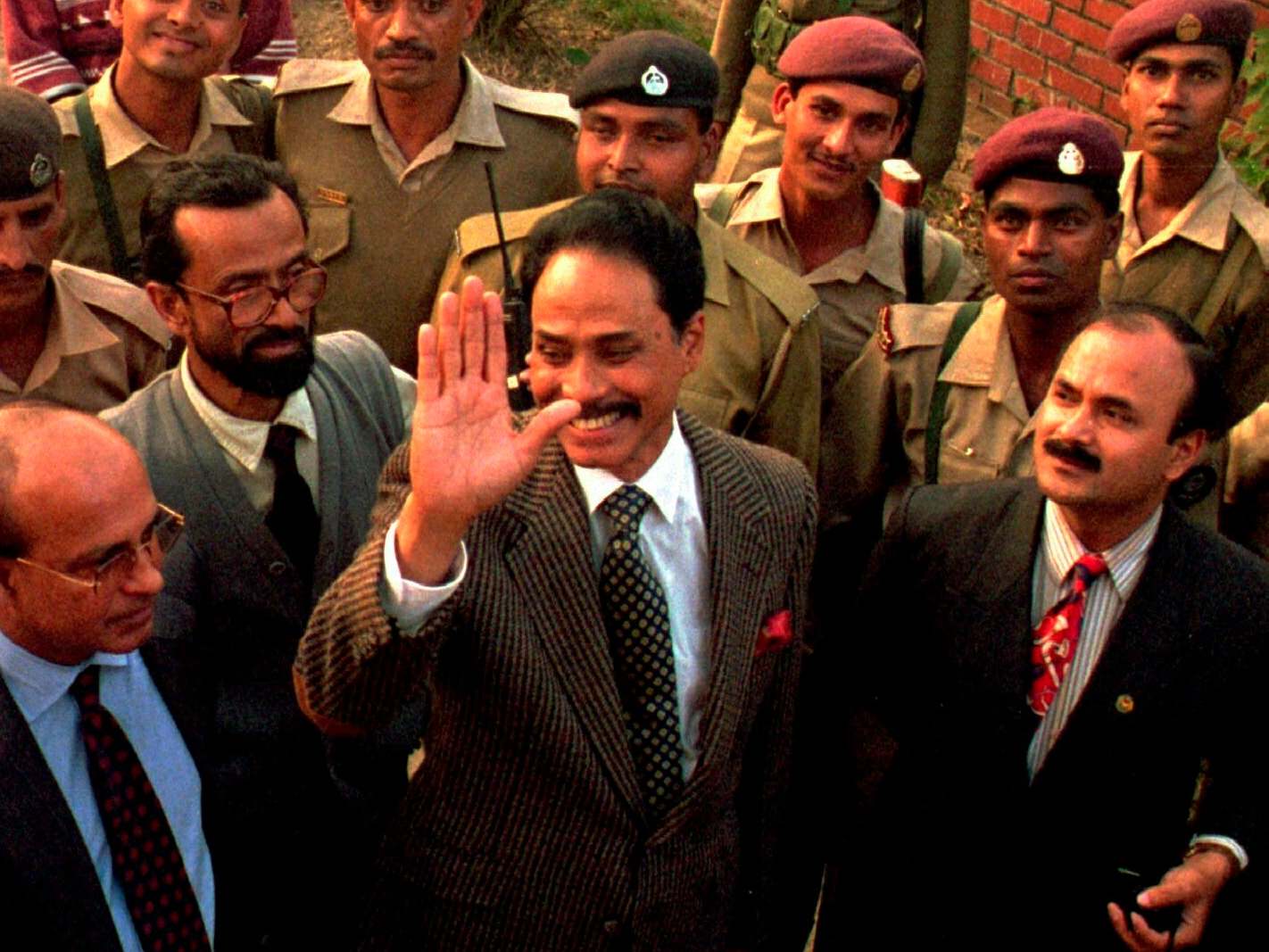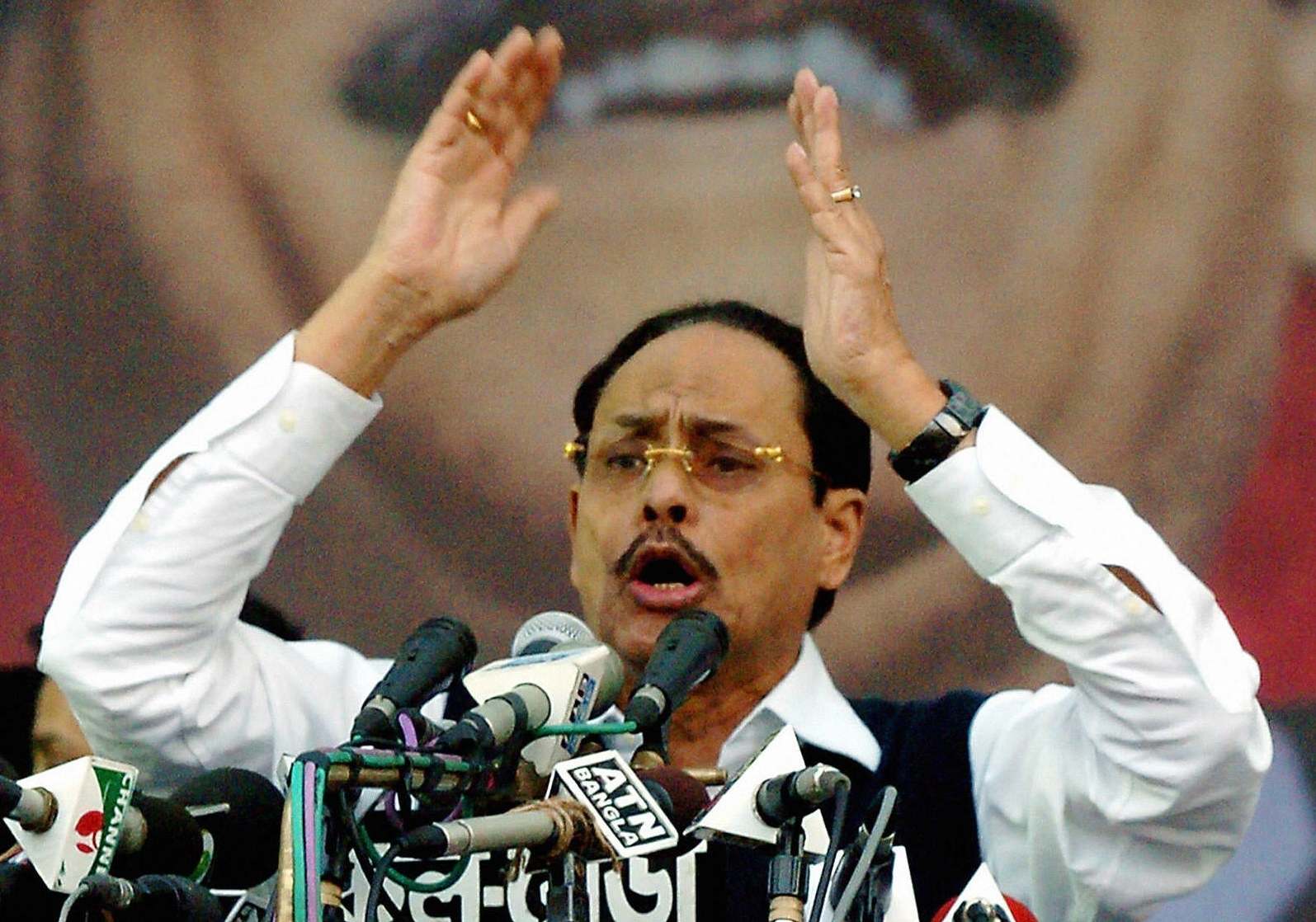Hussain Muhammad Ershad: Bangladesh president and army chief who led a bloodless coup
The army chief regarded himself as a poet and a cultured man, but he suspended parliament and the constitution, and cracked down on political opponents

Bangladesh army chief Lieutenant General Hussain Muhammad Ershad, who has died aged 89, seized power in a bloodless coup and then served as the beleaguered south Asian nation’s president from 1983 until 1990, when he was toppled over allegations of corruption and imprisoned.
Although his rule would be characterised as a military dictatorship, it was relatively benign and Ershad was not a brutal despot – he encouraged his people to view him as a poetic, cultured man. In comments made to the press in 1996 from prison – where he was housed in private chambers and waited on by his own personal chef – Ershad said that his “greatest failure ... was running the country softly with a heart of a poet”.
Ershad was born to Mokbul Hossain and Mazida Khatun in 1930 in the city of Dinhata in the state of West Bengal, India, which was under British rule at the time. In 1948, after the India-Pakistan partition, Ershad’s family migrated to East Pakistan, (which would become Bangladesh in 1971 after the liberation war). He attended Carmichael College in Rangpur and graduated Dhaka University in 1950.
Ershad was commissioned into the Pakistan army in 1952 and was an adjutant in the East Bengal Regiment, the largest formation in the future Bangladesh army. He was held as a prisoner of war throughout the Bangladesh liberation war, along with other Bengali officers stationed in West Pakistan.
In 1973 they were repatriated to Bangladesh, which was newly independent from Pakistan following the nine-month war, and military and politics remained closely intertwined. Members of the army who had been imprisoned during the liberation war tended to form different political alliances from those who had participated in the war at home. This would create instability in national politics for years to come after independence.
In 1975, army chief of staff General Ziaur Rahman appointed Ershad as his deputy. Rahman legalised military coups and assumed the presidency in 1977. Due to his professionalism and talent for Bengali speechwriting, Ershad became one of Rahman’s closest politico-military advisers. He was promoted to chief of staff and the rank of lieutenant general in 1978.
Although Rahman enjoyed overall popularity and public confidence, he was assassinated by a faction of Bangladesh army officers in May 1981.
Ershad was initially loyal to acting president Abdus Sattar, a frail vice president who had gained power by default despite being hospitalised at the time of Rahman’s assassination. However, despite Sattar actually winning the 1981 presidential election, Ershad overthrew him. In a bloodless coup the following year, Sattar was forced to sign a statement relinquishing power. Ershad declared himself president in 1983, and subsequently won the controversial 1986 election despite reports of irregularities and a sweeping boycott by all major opposition candidates.

By this point, in the 15 years since Bangladesh had gained its independence, two leaders had been assassinated and governments repeatedly toppled by military intrusion – political turmoil exacerbated by the fact that the nation ranked eighth most populous and second poorest in the world.
While the elegant and seemingly cultured leader would often arrive late to international conferences with the excuse that he had just been “penning a couple of stanzas”, there were reports of violence, human rights abuse and corruption during Ershad’s tenure. He suspended the country’s constitution and parliament, and cracked down on his political opponents. He amended the constitution in 1988 and made the controversial decision to pronounce Islam as state religion of the formerly officially secular Muslim-majority nation. Critics considered this a move by Ershad to gain popularity.
Ershad served as president until 1990, when he was forced to step down following weeks of anti-government, pro-democracy protests in a mass uprising led by Khaleda Zia and Sheikh Hasina, who have ruled Bangladesh intermittently since 1991.
After his ousting, Ershad was arrested in 1991 and released on bail in 1997, as he faced charges in more than two dozen cases, the most serious of which was the accusation that he had secreted millions of dollars of foreign aid money in Swiss bank accounts. His long list of crimes also included a charge of plagiarism – reportedly employing a band of bureaucrats to round up the work of unknown Bengali poets so that he could publish their work under his own name.
Despite these controversies, Ershad managed to remain active on the political scene and Bangladesh’s main opposition, the Jatiya Party, which he founded in 1985 remained a significant electoral force. Ershad became Jatiya’s MP in 1991, with successful re-election in all subsequent general elections.
He was still serving as opposition leader in parliament at the time of his death.
He is survived by a daughter and three sons.
Hussain Muhammad Ershad, army officer and former president of Bangladesh, born 1 February 1930, died 14 July 2019
Join our commenting forum
Join thought-provoking conversations, follow other Independent readers and see their replies
Comments
Bookmark popover
Removed from bookmarks